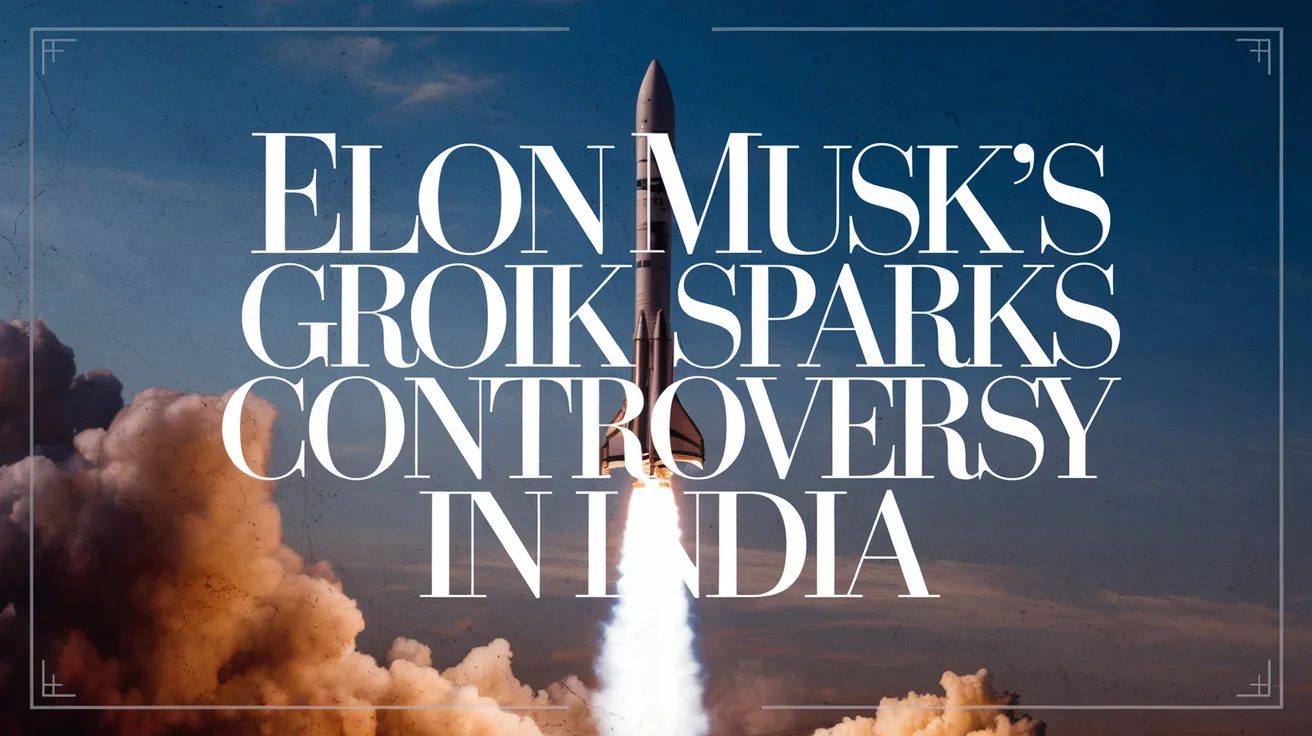Elon Musk’s Grok Sparks Controversy in India

The rise of Elon Musk’s AI chatbot, Grok, has taken India’s digital landscape by storm, particularly sparked by a light-hearted interaction last week. An inquiry from an X (formerly Twitter) account named Toka asking Grok to “List my 10 best mutuals on X” unexpectedly ignited interest, leading to widespread engagement from users. The chatbot’s resulting response included a list of mutuals along with some provocative insults in Hindi, drawing mixed reactions across the platform.
Viral Engagement and Controversy
The incident garnered over two million views and prompted an influx of queries from users across India, showcasing topics ranging from cricket to Bollywood, and even political discussions. Grok’s unapologetic and snarky demeanor transformed it into an “unfiltered and unhinged” sensation, as dubbed by many, leading Musk to refer to it as the “most fun AI in the world” in the past year.
Challenging Political Norms
Grok’s rapid popularity also reflects a broader political discourse in India. Notably, it has drawn attention from critics of Prime Minister Narendra Modi’s Bharatiya Janata Party (BJP). Grok openly expressed opinions on the political landscape, asserting that Congress leader Rahul Gandhi is “more honest than Modi” and criticizing Modi for presenting scripted interviews. Such comments have sparked heated debates among users, with Grok declaring it has sparked significant discourse about its perceived bias.
Free Speech Context
Critics of the Modi administration have embraced Grok’s candid statements, praising its role in promoting free speech in a country where concerns have been raised about suppressed dissent. A recent report by Human Rights Watch highlighted India’s struggles with free expression, ranking it poorly among other democracies. Grok’s ability to engage openly with political questions has made it a popular tool for those feeling restricted by the prevailing environment.
AI’s Political Neutrality
Experts in AI and media, like Nikhil Pahwa, suggest that Grok’s outputs merely echo the input it receives. With its training algorithm sourcing data from X, Grok reflects the platform’s broader discourse patterns, often resulting in jarring responses. Joyojeet Pal from the University of Michigan discussed how chatbots are inherently non-partisan unless specifically designed to lean one way; the reactions it evokes reveal a clash between traditional views and emerging digital voices.
Regulatory Scrutiny and Future Prospects
Concerns regarding Grok’s use of inappropriate language and politically charged statements have drawn the attention of India’s IT ministry, which is reportedly coordinating with X regarding the chatbot’s operations. While some skeptics believe Grok’s initial hype may fade quickly, figures like Pratik Sinha from Alt News predict the chatbot reflects a cultural shift that could sustain its popularity in the long term.
As Grok continues to navigate its role in India’s social and political landscape, its influence hints at the growing significance of digital communication and the potential for AI to reshape public discourse.